How to Become a Prophet in Four Easy Steps
Merriam Webster’s Advanced Learning English Dictionary defines the word “divination” as follows: the practice of using special signs or special powers to predict the future. The word divination is uttered by Moishe twice in our parsha. He warns the Yiddin against having diviners among them. What the hec is a diviner? Shoin, we will explore that just below, ober ershtens….
In shul this past shabbis as those in attendance were listening to parshas Re’ay, the Oisvorfer was -as he usually is- one parsha ahead reading parshas Shoiftim searching for a topic yet to covered in the previous eight postings on this parsha. Welcome to our ninth. In previous reviews of Shoiftim, we covered Kingship, the early polygamists, and various other interesting topics including the appointment of judges, officers, false witnesses, and so much more. In fact, Shoiftim features 41 mitzvis (27 of the ah-say, thou shall do variety). Avada you should check them out in the archive section of the ever burgeoning site. Where? At www.oisvorfer.com.
Mistama you know -or should- that with each reading of the heylige Toirah, though the words are the same -and have been so since its first edition back in 2488 (yes, the Yiddin did receive the Ten Commandments back in 2248, ober Moishe only reduced the heylige Toirah to writing in 2488), and with each review, one either sees -seems to see- or focuses on words which appear mamish new. And taka that’s what happened this week to the Oisvorfer as he came cross and then delved further into various pisukim (verses). Let’s then begin by learning a few innavaynig. In other words: let’s read the text as it appears.
Says the heylige Toirah (Devorim 18:10), azoy: There should not be found among you one who passes his son or daughter through the fires, one who uses divination, one who predicts through auspicious time calculations, or through omens, or one who practices witchcraft. That was quite a mouthful and also quite confusing. Passing sons and daughters through fires? Who does that? Seemingly the K’nanim did -those inhabiting the Land before the Yiddin -with help from the RBSO- chased them out. Veyter. And what is a diviner? Says Rashi: One who takes his stick in hand and says (as though consulting it), “shall I go or shall I not go?” What? Is that emes? All it takes to become a diviner, a fortune teller, is to hold one’s stick in one’s hand? Who knew? Isn’t that what most Yiddin (goyim too) have been doing daily -and more- for generations? Are we and they all diviners? Is that what it really means? Maybe so!
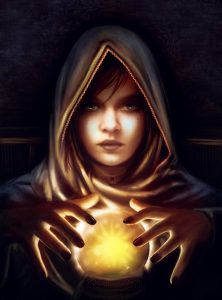 Says the Ba’al Haturim, he an expert in the art of numerology and matching up the numerical value of each letter of a word or phrase to another, azoy: the Hebrew word Koisame (diviner), when all its letters are added, equates to the words “Oichaze b’makloi,” one who grabs onto his stick. Are we all expert fortune tellers? Veyter.
Says the Ba’al Haturim, he an expert in the art of numerology and matching up the numerical value of each letter of a word or phrase to another, azoy: the Hebrew word Koisame (diviner), when all its letters are added, equates to the words “Oichaze b’makloi,” one who grabs onto his stick. Are we all expert fortune tellers? Veyter.
Just as the Oisvorfer was getting over his excitement regarding his new powers, he read these few pisukim. Says the heylige Toirah (Devorim 18:15-22) azoy:
| 15. A prophet from among you, from your brothers, like me, the Lord, your God will set up for you; you shall hearken to him.
|
טונָבִ֨יא מִקִּרְבְּךָ֤ מֵֽאַחֶ֨יךָ֙ כָּמֹ֔נִי יָקִ֥ים לְךָ֖ יְהֹוָ֣ה אֱלֹהֶ֑יךָ אֵלָ֖יו תִּשְׁמָעֽוּן: | |
| 16. According to all that you asked of the Lord, your God, in Horeb, on the day of the assembly, saying, “Let me not continue to hear the voice of the Lord, my God, and let me no longer see this great fire, so that I will not die.”
|
טזכְּכֹ֨ל אֲשֶׁר־שָׁאַ֜לְתָּ מֵעִ֨ם יְהֹוָ֤ה אֱלֹהֶ֨יךָ֙ בְּחֹרֵ֔ב בְּי֥וֹם הַקָּהָ֖ל לֵאמֹ֑ר לֹ֣א אֹסֵ֗ף לִשְׁמֹ֨עַ֙ אֶת־קוֹל֙ יְהֹוָ֣ה אֱלֹהָ֔י וְאֶת־הָאֵ֨שׁ הַגְּדֹלָ֥ה הַזֹּ֛את לֹֽא־אֶרְאֶ֥ה ע֖וֹד וְלֹ֥א אָמֽוּת: | |
| 17. And the Lord said to me, “They have done well in what they have spoken.
|
יזוַיֹּ֥אמֶר יְהֹוָ֖ה אֵלָ֑י הֵיטִ֖יבוּ אֲשֶׁ֥ר דִּבֵּֽרוּ: | |
| 18. I will set up a prophet for them from among their brothers like you, and I will put My words into his mouth, and he will speak to them all that I command him.
|
יחנָבִ֨יא אָקִ֥ים לָהֶ֛ם מִקֶּ֥רֶב אֲחֵיהֶ֖ם כָּמ֑וֹךָ וְנָֽתַתִּ֤י דְבָרַי֙ בְּפִ֔יו וְדִבֶּ֣ר אֲלֵיהֶ֔ם אֵ֖ת כָּל־אֲשֶׁ֥ר אֲצַוֶּֽנּוּ: | |
| 19. And it will be, that whoever does not hearken to My words that he speaks in My name, I will exact [it] of him.
|
יטוְהָיָ֗ה הָאִישׁ֙ אֲשֶׁ֤ר לֹֽא־יִשְׁמַע֙ אֶל־דְּבָרַ֔י אֲשֶׁ֥ר יְדַבֵּ֖ר בִּשְׁמִ֑י אָֽנֹכִ֖י אֶדְר֥שׁ מֵֽעִמּֽוֹ: | |
| 20. But the prophet who intentionally speaks a word in My name, which I did not command him to speak, or who speaks in the name of other gods, that prophet shall die.
|
כאַ֣ךְ הַנָּבִ֡יא אֲשֶׁ֣ר יָזִיד֩ לְדַבֵּ֨ר דָּבָ֜ר בִּשְׁמִ֗י אֵ֣ת אֲשֶׁ֤ר לֹֽא־צִוִּיתִיו֙ לְדַבֵּ֔ר וַֽאֲשֶׁ֣ר יְדַבֵּ֔ר בְּשֵׁ֖ם אֱלֹהִ֣ים אֲחֵרִ֑ים וּמֵ֖ת הַנָּבִ֥יא הַהֽוּא: | |
| 21. Now if you say to yourself, “How will we know the word that the Lord did not speak?”
|
כאוְכִ֥י תֹאמַ֖ר בִּלְבָבֶ֑ךָ אֵיכָה֙ נֵדַ֣ע אֶת־הַדָּבָ֔ר אֲשֶׁ֥ר לֹֽא־דִבְּר֖וֹ יְהֹוָֽה: | |
| 22. If the prophet speaks in the name of the Lord, and the thing does not occur and does not come about, that is the thing the Lord did not speak. The prophet has spoken it wantonly; you shall not be afraid of him. | כבאֲשֶׁר֩ יְדַבֵּ֨ר הַנָּבִ֜יא בְּשֵׁ֣ם יְהֹוָ֗ה וְלֹא־יִֽהְיֶ֤ה הַדָּבָר֙ וְלֹ֣א יָבֹ֔א ה֣וּא הַדָּבָ֔ר אֲשֶׁ֥ר לֹֽא־דִבְּר֖וֹ יְהֹוָ֑ה בְּזָדוֹן֙ דִּבְּר֣וֹ הַנָּבִ֔יא לֹ֥א תָג֖וּר מִמֶּֽנּוּ: |
Bikitzur, in short, Moishe instructs the Yiddin to appoint for themselves a Prophet like he is. Shoin, given that Moishe did not give many more details, the heylige Gemora (Nidorim 38A) came along and filled them in. How taka does one become a prophet? Is one elected? Does one need to have served in another position prior to? Efsher a gabbai of a shul, a former VP? Is experience necessary? Let’s find out.
Says the heylige Gemora: the RBSO only allows His presence to rest on a person who is strong, wealthy, wise, and humble. One needs the RBSO’s presence -rested on or in him/her- in order to offer legitimate prophecy. Ober, shtlet zich di shaylo (the questions arises), azoy: Have you ever come across a person who has all these qualifications? In kimat all cases, at least two of the conditions are mutually exclusive. Wealthy and humble don’t epes go together! And says the Rambam (Hilchois Yisoyday HaToirah 7:1), azoy: in order to receive prophecy, a person must be extremely wise, a master of his emotions (in Seinfeld speak: a master of his domain, if you chap), and unperturbed by his evil inclination in worldly matters. He must constantly control his evil inclination with his mind, and one must have and extremely broad and fine mind. Nu, is it a wonder we have not seen a real prophet in our lifetimes and in many generations?
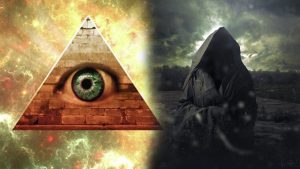 Ober, after reading what the Rambam had to say about the job requirements, asks the Kesef Mishneh so gishmak, azoy: why did the Rambam omit the requirements specifically delineated in the heylige Gemora? What about the conditions set forth which included strength, wealth and humility? Did the Rambam chap that it was all but impossible to find all these attributes in one person?
Ober, after reading what the Rambam had to say about the job requirements, asks the Kesef Mishneh so gishmak, azoy: why did the Rambam omit the requirements specifically delineated in the heylige Gemora? What about the conditions set forth which included strength, wealth and humility? Did the Rambam chap that it was all but impossible to find all these attributes in one person?
Grada this reminds the Oisvorfer of a shtikel joke: the shadchan (matchmaker) calls an older single guy and asks, “what type of a girl are you looking for?” Perhaps I can facilitate a shidduch!? The fellow answers: she must be very smart, from a great family- real yichus (pedigree), very rich, and of course very very pretty. Said the shadchan in response: are you mishuga? From that list I can easily make four different shiduchim (matches)! Bah ra beem!
Ober why taka did the Rambam omit the requirements as listed in the heylige Gemora? Nu, truth be told, these attributes are not specifically delineated. They are not? The emes is that the Gemora infers these attributes because our leader Moishe had them all. He was a strong leader, zicher in control of his yetzer hora (let’s not forget that he separated from this wife Tzipoirah -also sexually- for a long period of time in order to receive prophecy), and he was avada very wealthy. He was? And we know this how and from where?
Ober, wasn’t he but a shepherd while back in Midyan? On the other hand, didn’t he grow up as a prince in Paroy’s castle? Ober, we must assume that Paroy cut him out of his will following Moishe’s whacking of the Mitzri and after he fled to Mitzrayim (Egypt) before returning decades later. How then did he become fabulously wealthy? Says the heylige Gemora: the RBSO saw to it that Moishe would become a wealthy man. How? Listen to this amazing piece of Medrish and Gemora and you will soon chap that all is in the RBSO’s hands. If He wants one to become wealthy, it’s a done deal. Ober, how taka did Moishe become wealthy?
Avada you recall that shortly after the Yiddin heard the Aseres Hadibrois (Ten Commandments) on Har Sinai, and though truly inspired in the days leading up to Revelation, and mistama for a few days after, not 40 days later, they sinned with the eygel (golden calf), a sin, we -according to many- are still paying for bazman hazeh (in our times). Moishe came down carrying the Tablets, witnessed the reveling and shoin: Moishe broke the Luchois (Tablets). How? He threw them to the ground where they shattered and the letters, we are taught, flew back up to shomayim (heaven). Next: the RBSO was all set to wipe out the Yiddin -to hit the factory reset button- and to begin all over again. Let’s not forget that He did just that in Noiach’s times. Ober, He let Moishe talk Him down. Moishe spent another 40 days up there and under instructions from the RBSO carved out a second set of Ten Commandments. Nu, if you recall -and since you mistama don’t, the Oisvorfer will share the words spoken by the RBSO to Moishe at that time. Said He: “Carve for yourself two stone Tablets like the first ones….”, a second set of Commandments. For himself? Shoin, from these words -carve for yourself- our sages have taught that Moishe became a shtikel partner in the carving operation. As he was carving the letters which formed the words, chips and shavings of sapphire were left over. And those shavings were his to keep. Moishe mistama saved these. Their value continued to increase. Generations later, these sapphire chips were, and still are, being sold to frum Yiddin -as well as a few goyim- all over the world in the form of precious stones and other jewelry husbands buy for their wives after they have misbehaved (the husbands, of course).
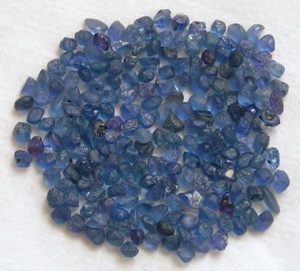 Says Rashi: the RBSO showed Moishe a sapphire mine in his tent and said “the leftover chips will be yours.” From the shavings and chips, Moishe became fabulously wealthy. Why did Moishe need wealth? Says the Toirah Timima so gishmak, azoy: the RBSO avada knew that wealth would be one of the four requirements in order to become a prophet and shoin, wealth was suddenly -in the form of a sapphire mine right there in the midbar- delivered for Moishe to see and then partake of.
Says Rashi: the RBSO showed Moishe a sapphire mine in his tent and said “the leftover chips will be yours.” From the shavings and chips, Moishe became fabulously wealthy. Why did Moishe need wealth? Says the Toirah Timima so gishmak, azoy: the RBSO avada knew that wealth would be one of the four requirements in order to become a prophet and shoin, wealth was suddenly -in the form of a sapphire mine right there in the midbar- delivered for Moishe to see and then partake of.
Shoin, with this all this wealth, Moishe now had the quality of wealth and along with his other good qualities, was now fully qualified to become a prophet in accordance with the Gemora’s requirements. Case closed? Not exactly. Ober, if that’s all emes, how was Moishe able to qualify as a prophet before he carved out the second set of Luchois? Was he not acting as a prophet to the Yiddin before he accumulated wealth? Avada he was! Shoin, efsher we can kler that he had trust funds, ver veyst.
It’s taka emes that in order to be a prophet one needs these attributes, all of them, wealth included. Ober, asks the Turei even: isn’t it the case that there were other prophets among the Yiddin who were neither wealthy nor strong? Indeed there were, more than one. Ober says the Kesef Mishneh azoy: efsher we can kler that the reason the Rambam omitted wealth and other physical qualities is because he was describing but a temp-prophet. And what is a temp-prophet vs. a more permanent one? Seemingly the RBSO empowered certain people throughout history with the gift of temporary prophecy. When the RBSO allowed, these people, including a number of bad actors -think Bilam- were imbued with the gift of prophecy on a temporary basis. And where Rambam provided his list of requirements, those were davka specific for the temporary prophet. Ober, even Rambam would agree that in order to be considered a real and long term prophet, one must have the four attributes delineated in the heylige Gemora. Those very four that Moishe had. Shoin and settled.
What then is the bottom line? Does a prophet need to be strong? In control of his emotions and yetzer horo, wealthy and wise, or not? Shoin, avada there is an answer and it goes like this: lioilom (generally speaking), to be a permanent prophet, one taka needs the qualities found in the Gemora. Ober, the RBSO has at times imbued prophetic skills onto those without these qualities. We have encountered people in Jewish history who did not qualify but did offer prophecy. What’s pshat? And the answer is: they had tem-prophet status.
Ober the Oisvorfer was thinking azoy: is prophecy not also a form of fortune telling? In any event, the Oisvorfer remains thoroughly confused regarding fortune telling and prophecy. Here in golus (Diaspora) we no longer have prophets. The RBSO has not sent us any real prophets and we are left to deal with a number of rabbis and mikubolim masquerading around as prophets. Certainly for bunches of your hard earned money, they will predict your future. Whether they have clarity of mind and or, are masters of their own domains and their inclinations, ver veyst!? One thing is zicher: they are seemingly all quite wealthy.
A gittin Shabbis-
The Heylige Oisvorfer Ruv
Yitz Grossman
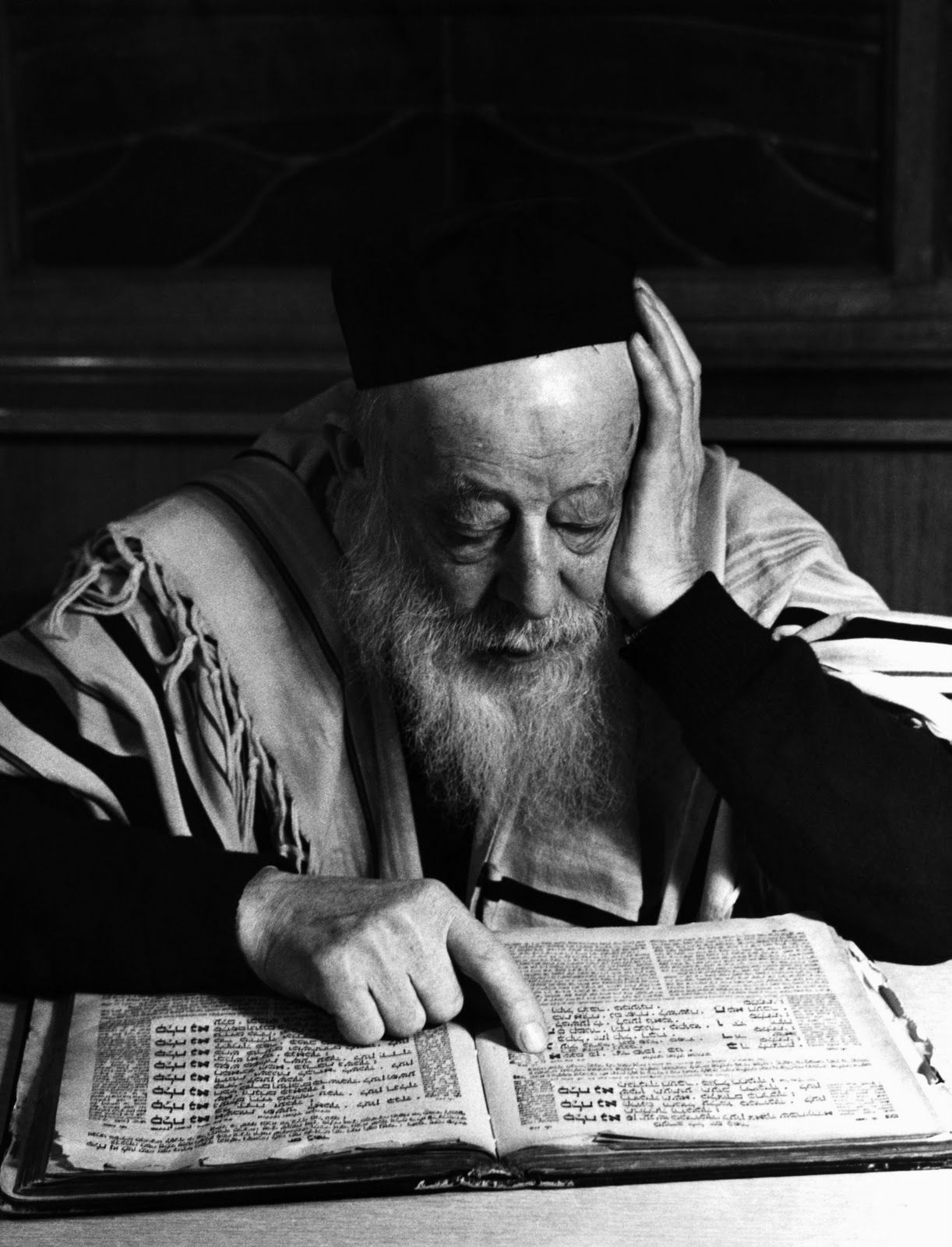
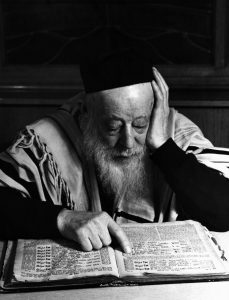
1 Comment
How does one become a prophet?